Sony's backwards stance on cross-play hurts games as a whole
For a company that talks a lot about innovation, Sony is the only one standing in the way.
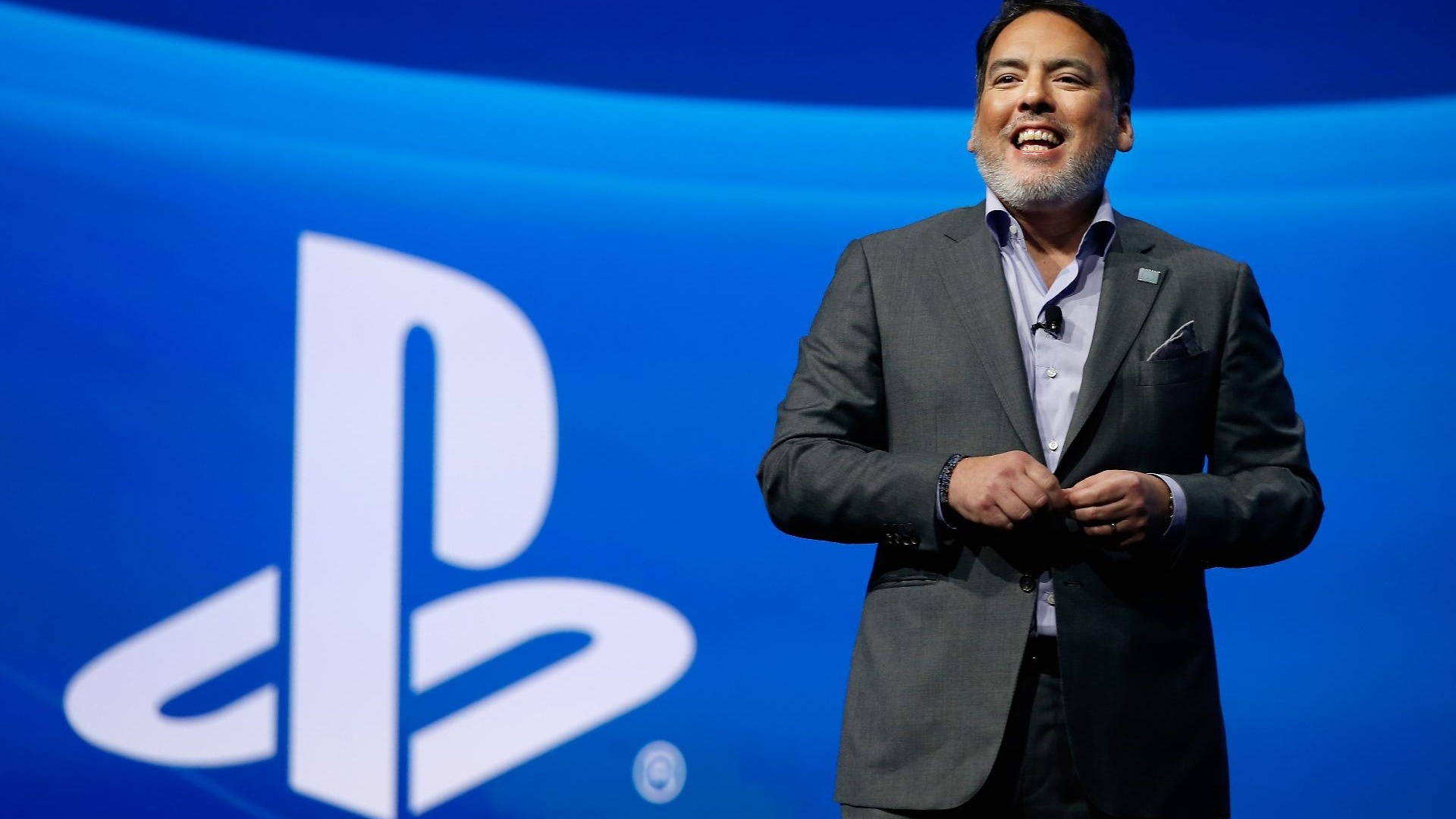
If PC gaming is special for one reason, it's that it emphasizes control and choice. Players can add mods, edit ini files, or change their hardware to tailor their experience. It's a platform built on freedom that empowers users to play how they want—something that has traditionally been antithetical to the design of consoles.
But times change.
Over the last generation, consoles have taken more than a few pages from the PC gaming playbook, like the Playstation 4 Pro and Xbox One X letting players choose between performance or better graphics. And with games like Fortnite, Rocket League, and Minecraft leading the charge with cross-platform play, the next step in innovation is one that every player benefits from regardless of whether they play on PC or console. Well, everyone except for Playstation 4 players, that is.
Console wars
The issue is about more than just protecting a bottom line: Sony's backwards stance on cross-play harms the games industry and players as a whole.
Sony's stance on cross-play between consoles has popped up in Playstation conversations again and again this summer. It's something that dates as far back as last year, when Rocket League developer Psyonix said that all they needed to make a unified ecosystem where Xbox, Switch, PS4, and PC players could all play together was for Sony to say OK. But Sony didn't do that. As it is right now, PS4 Rocket League players can only play with PC players, while all other platforms can hop online together (and soon even stick together in groups).
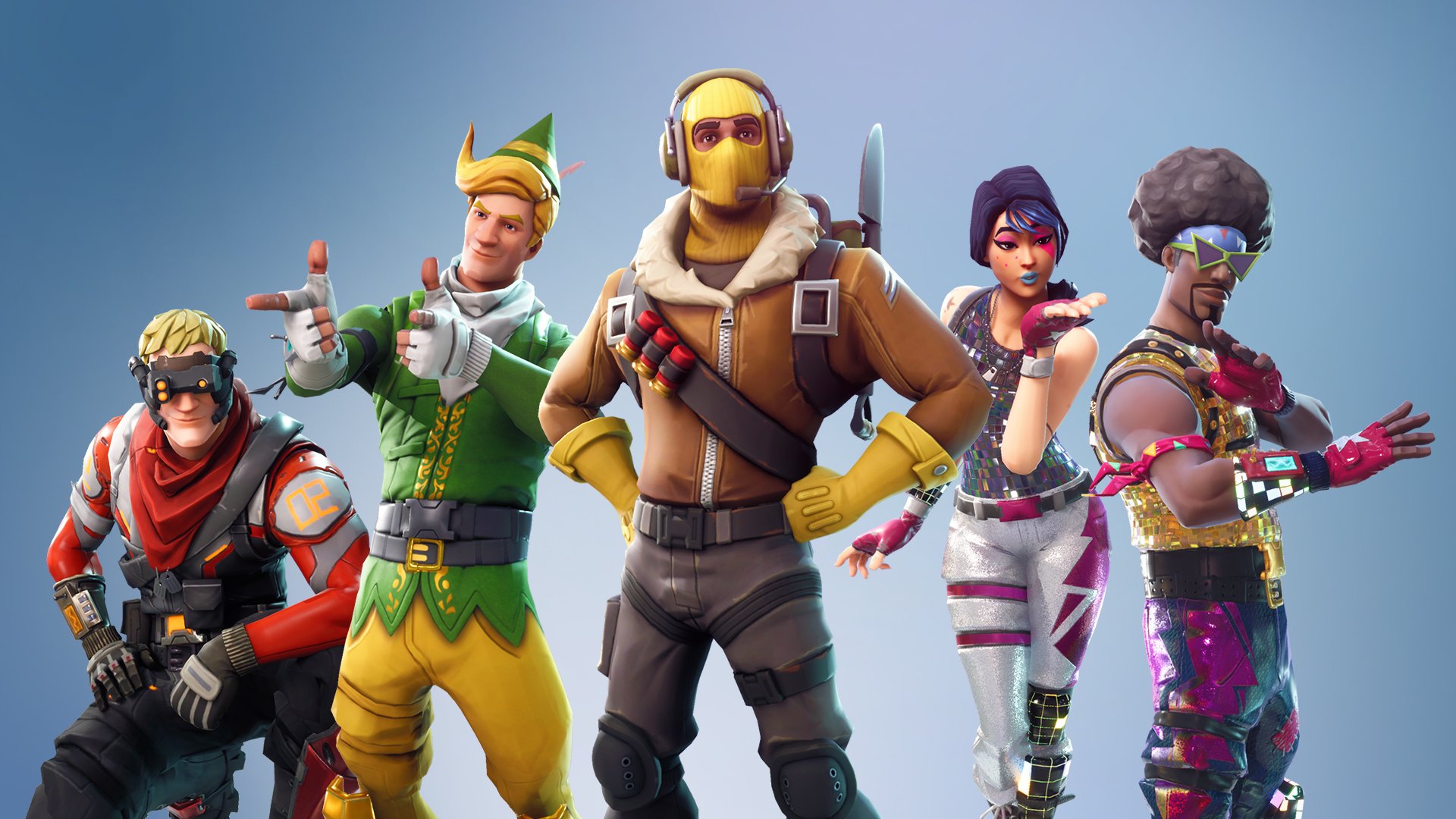
What's new with the latest Fortnite season
The best Fortnite creative codes
The optimal Fortnite settings
Our favorite Fortnite skins
The best Fortnite toys
Things got dramatic when, during E3, Fortnite players with PS4-linked accounts tried to log onto the newly released Switch version. They were greeted with an error message telling them that they were locked out and needed to make a new account. If you, like me, played Fortnite on PC and liked the idea of playing on the go with Switch but had, at one point, logged in using the PS4 version, you'd have to forfeit all of your cosmetic items and start a new account in order to do so.
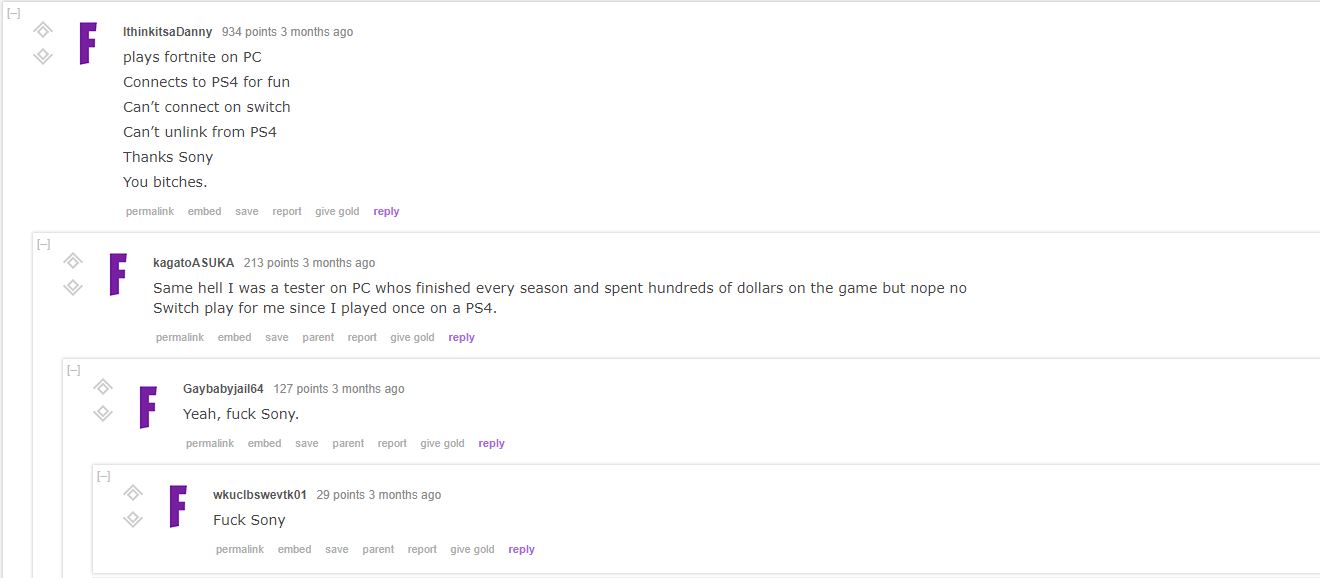
That sucked, and it upset many Fortnite players. Adding salt to the wound, Sony's first response missed the point completely by asserting that the PS4 has a lot of players—which was never a concern to begin with. As the pressure mounted it seemed like Sony might capitulate to the demand for open cross-play. Speaking to Eurogamer, president and CEO of Sony Interactive Entertainment America Shawn Layden said, "We're looking at a lot of the possibilities. You can imagine that the circumstances around that affect a lot more than just one game. I'm confident we'll get to a solution which will be understood and accepted by our gaming community, while at the same time supporting our business."
There was a glimmer of hope, until Sony CEO Kenichiro Yoshida snuffed it out: "On cross-platform, our way of thinking is always that PlayStation is the best place to play," he told The Independent. "Fortnite, I believe, partnered with PlayStation 4 is the best experience for users, that's our belief."
Keep up to date with the most important stories and the best deals, as picked by the PC Gamer team.
It's a stance that is bafflingly short-sighted, and industry bigwigs from all corners know it, too. Microsoft and Nintendo joined forces to take shots at Sony through advertisements, but far more insightful are the comments made by notable developers on both sides of the fence. Bethesda's Pete Hines diplomatically told Game Informer that cross-play with The Elder Scrolls: Legends was "non-negotiable." More recently, Microsoft executive Mike Ybarra took a shot at Sony in a tweet, saying that they "still weren't listening to gamers."
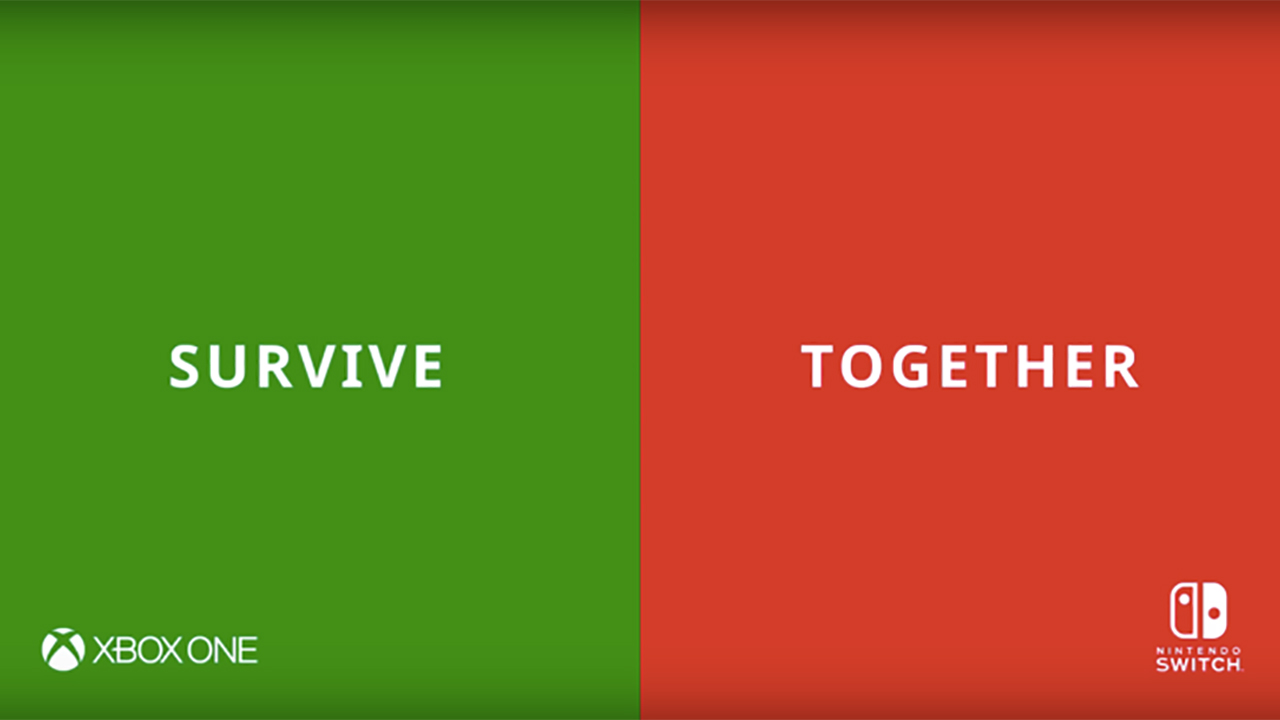
Because the Playstation 4 commands such a solid lead this console generation, it's natural that its competition would look for any opportunity to take shots at it—even if it's warranted. The Playstation 4 has sold 82 million consoles as of 2018 while estimates say Microsoft has sold about half that many Xbox Ones. It makes sense why Sony wouldn't see the need to play ball with its competitors and allow cross-play. But the issue is about more than just protecting a bottom line: Sony's backwards stance on cross-play harms the games industry and players as a whole, including PC gamers.
Innovation is key
Wanting more insight into how game developers feel about cross-play, I reached out to Psyonix's VP of publishing, Jeremy Dunham, to talk about how tearing down the arbitrary walls consoles have had for generations benefited the indie studio.
"We've seen a big difference in cross-play for Rocket League," Dunham says. He explains that, in the beginning, Rocket League's cross-play between PC and PS4 players was a massive boon to the untested indie game. At that point, Rocket League was a multiplayer-only game from an unknown studio, and having cross-play between PS4 and PC meant that it had one unified audience that could play together, rather than smaller segmented audiences that the studio had to work to grow individually.
On the PC especially, where competition is incredibly fierce, a meager playerbase can kill a new game dead. Look at Lawbreakers or Mirage: Arcane Warfare. People don't want to buy multiplayer games if there's a concern that not enough people are playing.
"There were a lot of folks that felt confident in being able to play Rocket League and purchase it on Steam because they knew there'd be a big pool [of players] to pull from," says Dunham. "We wanted faster matchmaking, better matchmaking. We wanted people to be able to play against their friends even if they didn't have a Playstation or vice versa."
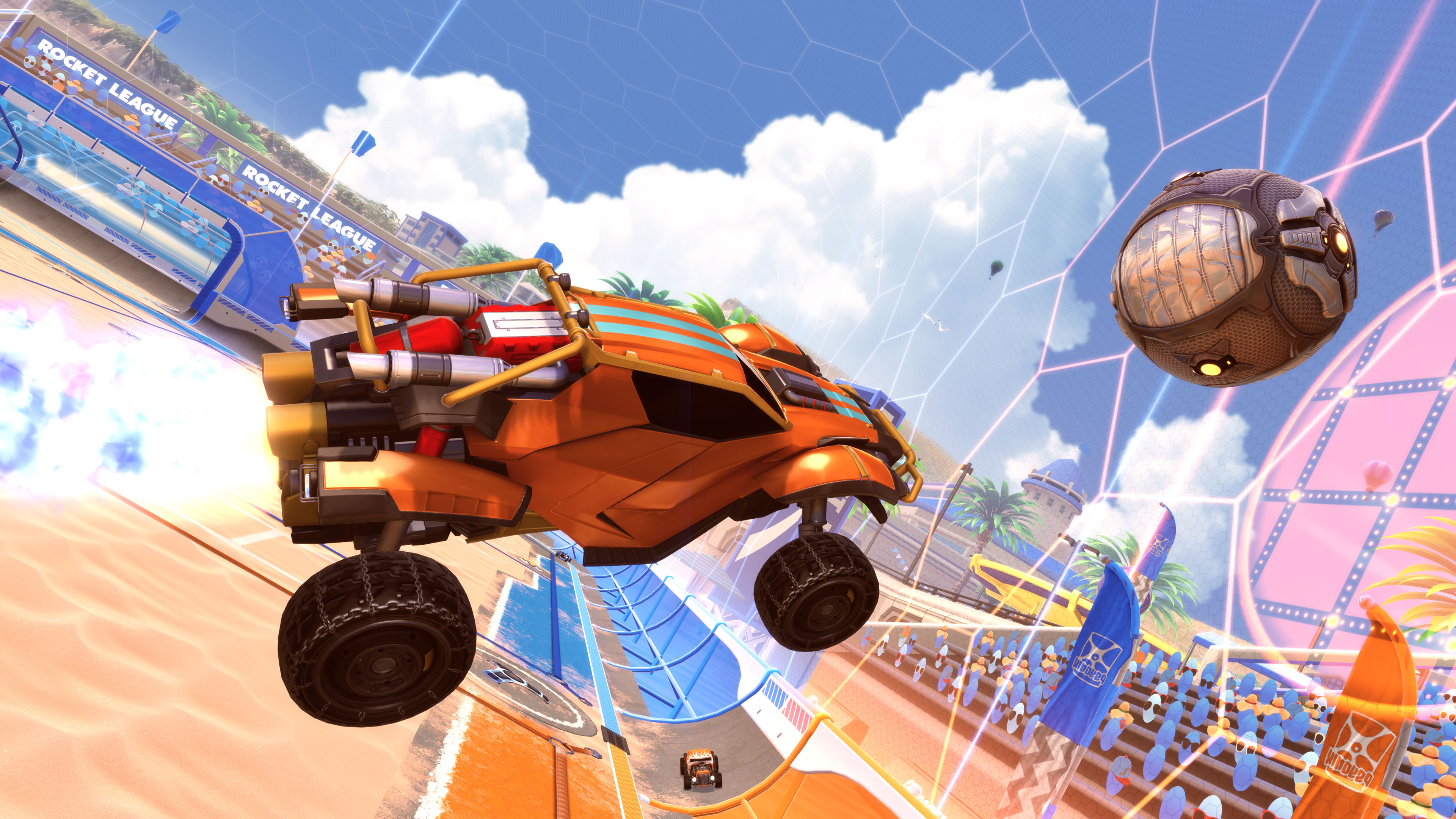
That's the direction the industry is headed and that sort of ecosystem will not only allow games to last longer but to have bigger communities.
Jeremy Dunham, Psyonix
According to Dunham, cross-play has become an instrumental part of Rocket League's success. He says that roughly 30 percent of the 3 million Rocket League matches played per day use cross-play between consoles and PC. And it's been good for business: players who use cross-play also tend to spend more money. "Our theory on it is that the fewer restrictions players have to the gameplay experience, the more likely they are to spend and get involved in that game's ecosystem," he says.
Dunham believes Psyonix's experience with cross-play proves that it's good for developers. That, in turn, benefits players by giving them bigger communities, in theory alleviating potential problems like long matchmaking queues.
But more importantly, games that support cross-play give players an incredible value. While it's awesome to be able to play games with friends regardless of whatever platform they might use, cross-play is also the first step toward a future that benefits all of us. A future where the progress we've made in games exists independently from the platform you play them on. Cloud saves are a start, but imagine that feature being available in every game regardless of platform: A future where I can play a game on my PC and then pick up where I was playing on my Switch.
That's the ethos of PC gaming that consoles should be taking inspiration from, pushing towards a world where we have even more control over how we play our games and fewer restrictions on who we can play them with.

"That's the direction the industry is headed and that sort of ecosystem will not only allow games to last longer but to have bigger communities," Dunham says. "But when you're restricted in the sense that keeps you in a single playground and you can't go to the playground next to you, that's a lot of limitations. I think that being free to do whatever you want within an ecosystem has been key to a lot of games. Freedom in videogames is really the ultimate goal for any player."
Right now, Sony is standing in the way of that future in order to preserve a doctrine of console war rivalry that has existed since the '90s. It's a battle it will lose, though, because robust cross-play could very well become a killer feature in the next generation of consoles. And with Microsoft and Nintendo already on board, cross-play is moving forward regardless.
When the Playstation 4 first debuted in 2013, Sony undermined Xbox One's position as a all-in-one media center by doubling-down on the reason people buy consoles in the first place: "This is for the players," is how the slogan went. Sony's stance on cross-play makes it clear that lately, it hasn't taken those words to heart.
With over 7 years of experience with in-depth feature reporting, Steven's mission is to chronicle the fascinating ways that games intersect our lives. Whether it's colossal in-game wars in an MMO, or long-haul truckers who turn to games to protect them from the loneliness of the open road, Steven tries to unearth PC gaming's greatest untold stories. His love of PC gaming started extremely early. Without money to spend, he spent an entire day watching the progress bar on a 25mb download of the Heroes of Might and Magic 2 demo that he then played for at least a hundred hours. It was a good demo.


